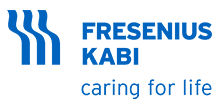预约演示
更新于:2026-02-27
Propofol
丙泊酚
更新于:2026-02-27
概要
基本信息
简介丙泊酚是GABAA受体的激动剂,是一种主要用于麻醉的小分子药物。丙泊酚起源于阿斯利康,于1989年10月获得使用批准。由于其起效快和作用时间短,丙泊酚已成为一种流行的镇静催眠剂,用于诱导和维持麻醉。除了麻醉特性外,丙泊酚还被发现具有止吐特性,可用作术后恶心和呕吐的辅助治疗。虽然丙泊酚提供治疗益处,但由于其能够在高剂量下诱导深度镇静或意识不清,因此也有可能被误用和滥用。尽管已确定其用途,但丙泊酚的确切作用机制尚未完全了解,需要进一步研究以阐明其药理学 |
药物类型 小分子化药 |
别名 Profofol、Propofol Medium and Long Chain Fat Emulsion、丙泊酚中/长链脂肪乳 + [21] |
作用方式 激动剂 |
作用机制 GABAA receptor激动剂(γ-氨基丁酸 A 受体激动剂) |
非在研适应症- |
权益机构- |
最高研发阶段批准上市 |
首次获批日期 美国 (1989-10-02), |
最高研发阶段(中国)批准上市 |
特殊审评紧急使用授权 (美国) |
登录后查看时间轴
结构/序列
分子式C12H18O |
InChIKeyOLBCVFGFOZPWHH-UHFFFAOYSA-N |
CAS号2078-54-8 |
关联
3,446
项与 丙泊酚 相关的临床试验IRCT20190813044521N1
The effect of the Bispectral Index (BIS) during induction of anesthesia on the amount of propofol in patients undergoing various surgical procedures.
开始日期2640-12-22 |
申办/合作机构- |
ChiCTR1900026826
Effect of Magnesium sulphate on target-controlled infusion of propofol
开始日期2109-10-24 |
申办/合作机构- |
JPRN-UMIN000060265
Elucidation of Changes in Plasma Concentration and Protein Binding Ratio of Propofol during Co-administration with Remimazolam - Elucidation of Changes in Plasma Concentration and Protein Binding Ratio of Propofol during Co-administration with Remimazolam
开始日期2028-04-01 |
100 项与 丙泊酚 相关的临床结果
登录后查看更多信息
100 项与 丙泊酚 相关的转化医学
登录后查看更多信息
100 项与 丙泊酚 相关的专利(医药)
登录后查看更多信息
27,342
项与 丙泊酚 相关的文献(医药)2026-12-31·ANNALS OF MEDICINE
Effects of nine sedative-analgesic combinations on fatigue after gastrointestinal endoscopy: a randomized controlled 3 × 3 factorial trial protocol
Article
作者: Huang, Lei ; Kuai, Ling-yu ; Liu, Lin-lin ; Lv, Jun ; Gui, Wen-hu ; Peng, Ke ; Ji, Fu-hai ; Xu, Li-na
INTRODUCTION:
Post-procedural fatigue is common after sedated gastrointestinal endoscopy and prolongs recovery. We describe a protocol for a prospective, single-center, randomized, controlled, 3 × 3 factorial trial to evaluate the effects of different sedative-analgesic combinations on patient-reported fatigue after gastrointestinal endoscopy.
PATIENTS AND METHODS:
Three hundred and fifteen patients (aged ≥ 45 years, ASA physical status I or II) presenting for gastrointestinal endoscopy with planned intravenous sedation will be randomly allocated (1:1:1:1:1:1:1:1:1; block sizes 9 and 18) to one of nine equip-sized groups generated by the factorial combination of three sedatives (propofol, ciprofol, remimazolam) with three adjuvant analgesics (sufentanil, esketamine, lidocaine). Sedation will be titrated to Modified Observer's Assessment of Alertness/Sedation scores of 1-2. The primary outcome is the Christensen Fatigue Scale score (range 1-10; higher = worse) 30 min after the procedure. The secondary outcome is the composite incidence of intra-procedural hypotension (mean arterial pressure < 65 mmHg) and hypoxemia (SpO2 < 90% for ≥ 10 s). Primary analysis will employ two-way factorial ANOVA to test the main effects of sedatives and analgesics on the 30-min fatigue score, with an exploratory interaction analysis.
DISCUSSION:
The results of this trial will provide high-resolution evidence on which sedative or analgesic agent most effectively mitigates early post-endoscopy fatigue, thereby informing patient-centered sedation choices and enhancing recovery.
TRIAL REGISTRATION:
Chinese Clinical Trial Registry (ChiCTR2500112657; registered on November 18, 2025).
2026-12-31·ANNALS OF MEDICINE
Dexmedetomidine nasal spray for patients undergoing endoscopic retrograde cholangiopancreatography: protocol for a randomized controlled trial
Article
作者: Zhuang, Min-yuan ; Sudhan, Nazneen ; Liu, Lin-lin ; Lu, Yong-da ; Peng, Ke ; Ji, Fu-hai ; Huang, Lei ; Lv, Jun ; Xu, Li-na
INTRODUCTION:
Endoscopic retrograde cholangiopancreatography (ERCP) is associated with significant discomfort and necessitates adequate sedation. This study aims to determine the effect of dexmedetomidine nasal spray adjunct to propofol sedation for patients undergoing ERCP procedures.
PATIENTS AND METHODS:
This randomized, double-blind, placebo-controlled trial will be conducted at a tertiary teaching hospital in eastern China. Approximately 15 min before sedation, 160 adult patients will be randomly assigned (1:1) to either the dexmedetomidine group (dexmedetomidine nasal spray; n = 80) or the control group (normal saline nasal spray; n = 80). Sedation will be achieved with a target-controlled infusion of propofol, titrated to Modified Observer's Assessment of Alertness/Sedation scores of 1 and 2. The primary endpoint is the total propofol consumption during sedation. Secondary endpoints include the composite incidence of hypotension and hypoxemia during the procedures and recovery; and fatigue scores 15 min after emergence from sedation. An independent Data and Safety Monitoring Committee will conduct an ongoing review of study implementation.
DISCUSSION:
We anticipate that preoperative dexmedetomidine nasal spray will decrease total propofol requirements, reduce sedation-related adverse events, and enhance recovery for patients undergoing ERCP.
TRIAL REGISTRATION:
Chinese Clinical Trial Registry (ChiCTR2400093656) on December 10, 2024.
2026-07-01·Anaesthesia Critical Care & Pain Medicine
Sex-based differences in anesthesia approaches and outcomes: A narrative review
Review
作者: Caillard, Anaïs ; Bouras, Marwan ; Léon, Karelle ; Vermeersch, Véronique ; Langeron, Olivier ; Gourier, Sylvain
Considering biological sex is essential for assessing perioperative risk and tailoring anesthetic care, yet this issue remains under-addressed. Preoperative risk scores rarely incorporate sex, despite growing evidence of sex-based differences across the perioperative continuum. Sex influences both anesthetic pharmacokinetics and pharmacodynamics. Women exhibit reduced sensitivity to propofol, experience more rapid emergence from general anesthesia, but demonstrate increased sensitivity to opioids and neuromuscular blockers like rocuronium. Postoperatively, women experience more severe and chronic pain, yet exhibit lower mortality rates. Complication profiles also vary by sex and type of surgery. This narrative review aims to summarize current evidence on sex-related differences in anesthesia and highlights key gaps in the literature according to recent considerations. While emerging data suggest meaningful sex-based variations, further research is needed to elucidate underlying mechanisms and promote a more personalized approach to perioperative management.
407
项与 丙泊酚 相关的新闻(医药)2026-02-23
机械通气是危重症患者呼吸支持的核心手段,却可能诱发呼吸机相关肺损伤(VALI),甚至加重急性呼吸窘迫综合征(ARDS)、引发全身炎症级联反应和多器官衰竭,成为 ICU 患者发病和死亡的重要诱因。发表于2025年10月《International Journal of Molecular Sciences》的综述,系统梳理了 VALI 的病理生理机制、临床诊疗要点,并探讨了个性化通气、人工智能、干细胞治疗等前沿策略,为临床防控提供了全面框架。
一、VALI 与 VILI:易混淆的核心概念
临床中常将呼吸机相关肺损伤(VALI) 与呼吸机诱导肺损伤(VILI) 混用,但二者存在明确区别:●VILI:由机械通气直接造成的肺部生物损伤,仅能在动物模型中明确判定;●VALI:机械通气相关肺损伤的临床表型,成因更广泛,可能是通气直接导致,也可能是通气过程中基础肺部疾病加重所致,是临床中更常用的广义概念。
VALI 的发病率缺乏明确数据,因与 ARDS 等肺损伤高度重叠,现有研究显示:无初始急性肺损伤的机械通气患者,5 天内新发肺损伤比例达 24%;ICU 中 23% 的机械通气患者符合 ARDS 诊断标准,VALI 是重要诱因或加重因素,且 ARDS 合并 VALI 患者院内死亡率高达 41.1%。二、VALI 的四大损伤机制,相互叠加加重病情1、VALI 的本质是机械通气产生的作用力超出肺组织耐受阈值,核心分为四大机制,且临床中常共同作用、相互叠加,放大肺损伤效应:●气压伤:肺泡压力超过肺结构耐受极限,直接破坏肺泡 - 毛细血管界面,引发气胸、纵隔气肿、间质性肺气肿,即使平台压控制在 30cmH₂O 以下,肺局部仍可能受损伤压力影响;●容量伤:大潮气量导致肺泡过度膨胀,引发肺应力和应变异常,破坏上皮和内皮屏障、增加毛细血管渗漏,最终导致肺水肿,且该损伤可独立于高平台压存在;●肺不张伤:肺单位反复塌陷与复张产生剪切应力,损伤上皮表面,同时机械通气会抑制表面活性物质功能,加重肺泡不张和气体交换障碍;●生物伤:机械牵拉和剪切力激活细胞内通路,释放炎症介质(IL-1β、IL-6、TNF-α 等),引发局部炎症并全身扩散,是 VALI 从肺部病变发展为多器官损伤的关键。2、细胞分子与全身效应:损伤的 “连锁反应”
机械通气通过机械转导激活炎症通路,中性粒细胞、巨噬细胞等免疫细胞释放活性氧(ROS)、蛋白酶,加重氧化应激和肺组织破坏;同时,受损肺泡释放的细胞因子、细胞外囊泡进入循环,引发急性肾损伤、肝功能障碍、心血管受损等多器官功能障碍,且与凝血瀑布相互作用,进一步放大炎症反应。
而脓毒症、全身炎症反应综合征患者,会与 VALI 形成双向恶性循环:通气加重全身炎症,全身炎症又降低肺组织对通气损伤的耐受阈值,显著提升死亡率。
三、谁是 VALI 的高危人群?这些因素需警惕
VALI 的发生与患者基础状况、通气参数密切相关,高危因素主要分为两类:1、患者自身因素●基础肺部疾病:ARDS(肺泡功能单位减少,被称为 “婴儿肺”)、COPD、哮喘等,肺部机械异质性使其更易受通气损伤;●高龄、合并症:肺炎、免疫抑制、多器官功能不全;●脓毒症、全身炎症状态:是 VALI 发生的重要诱因,且会加重损伤程度。2、通气参数因素
高 PEEP、高吸气流速、长吸气时间、高呼吸频率,以及延长机械通气时长、平台压 / 峰压过高,均会显著提升 VALI 风险;其中驱动压和机械功率是关键指标,驱动压升高与死亡率独立相关,机械功率过高则会加重肺组织细胞和细胞外基质破坏。四、VALI 的临床识别:症状、影像与生物标志物
VALI 的临床表现与 ARDS 高度相似,需结合症状、影像学、生物标志物综合判断,同时与基础疾病进展相鉴别。1、核心临床症状
以渗透性肺水肿 + 氧合障碍为核心,表现为低氧血症(需提高吸氧浓度)、呼吸性酸中毒(或早期低碳酸血症),机械通气患者可出现呼吸频率增快、辅助呼吸肌参与、心率加快,以及峰压 / 平台压升高、肺顺应性下降,严重时因气压伤出现气胸、皮下气肿。2、影像学特征●胸片:双侧肺泡 / 间质性浸润影,可呈 “白肺” 表现,心脏轮廓正常是与心源性肺水肿的关键鉴别点;●CT:斑片状、异质性实变和肺不张,部分区域可见过度充气或气体陷闭的透亮区。3、潜在生物标志物
目前尚无 VALI 特异性标志物,但部分指标可反映肺损伤程度:●肺泡上皮损伤标志物:晚期糖基化终末产物受体(RAGE)、表面活性蛋白 D(SP-D),血浆水平与肺损伤严重程度正相关,且低潮气量通气可使其显著下降;●炎症标志物:IL-6、IL-8、TNF-α,虽非特异性,但升高提示炎症激活,与不良预后相关。4、关键鉴别:VALI vs 基础疾病进展
VALI 由机械通气的物理作用力驱动(气压伤、容量伤),而 ARDS 等基础疾病进展由内在炎症 / 感染驱动;鉴别需结合通气参数变化(如驱动压、机械功率骤升)、临床轨迹(通气调整后症状是否缓解)、影像学动态变化,以及患者对肺保护通气的反应。五、VALI 的核心防控策略:以肺保护通气为基础,多手段联合
VALI 的防控以肺保护通气策略为核心,辅以体位管理、药物、液体调控等手段,且所有干预均需遵循 “个体化” 原则,平衡疗效与风险。1、基础:肺保护通气,这两个指标是关键
ARDSNet 经典研究确立了肺保护通气的金标准,核心是低潮气量 + 限制平台压:采用 6mL/kg 理想体重的潮气量,平台压控制在 30cmH₂O 以下,可使 ARDS 患者死亡率降低约 9%,同时缩短机械通气时长、降低循环炎症因子水平。2、PEEP 的个体化滴定是重点:
PEEP 可防止肺泡塌陷、减少肺不张伤,但过高会导致肺泡过度膨胀、血流动力学受损;目前无统一最佳值,需根据患者氧合、肺顺应性、血流动力学调整,影像学(如肺超声)引导的 PEEP 滴定更具优势。3、辅助疗法:针对性降低损伤风险●俯卧位通气:适用于重度 ARDS 患者,通过均匀分布跨肺压、改善通气血流匹配,显著降低 28 天和 90 天死亡率,且无严重不良事件增加,是重度 ARDS 的标准治疗;●神经肌肉阻滞剂(NMBAs):如顺阿曲库铵,持续 48 小时输注可改善患者 - 呼吸机同步性,降低气胸、气压伤风险,缩短机械通气和 ICU 住院时长,提升 28 天生存率;●肺复张手法:通过间歇性肺过度充气打开塌陷肺泡,需配合高 PEEP 防止复张后再塌陷,适用于严重低氧血症的抢救,不建议常规使用(避免气压伤和血流动力学波动);●保守液体管理:减少肺水肿形成,显著增加呼吸机无辅助天数和 ICU 无住院天数,改善肺功能,但需避免低血容量导致的多器官衰竭,尤其高龄患者需谨慎。4、非通气策略:减少并发症,促进恢复
早期活动(物理治疗 + 职业治疗)联合每日镇静中断,可显著提升患者出院后独立功能状态,增加呼吸机无辅助天数,同时改善神经认知恢复,是机械通气患者的常规干预手段。
六、前沿研究:从个性化通气到干细胞治疗,突破传统防控
现有策略仍无法完全避免 VALI,且 ARDS 患者死亡率仍居高不下,近年来研究聚焦于个性化、精准化干预,结合人工智能、靶向药物、干细胞等技术,突破传统纯机械通气的局限。1. 个性化通气:
告别 “一刀切”,适配患者肺生理
传统通气策略基于群体数据,而个性化通气根据患者肺形态、力学特征调整参数,是未来核心方向:●基于影像学的分型:将 ARDS 分为 “局灶型” 和 “非局灶型”,针对性调整潮气量、PEEP、俯卧位时机,可降低死亡率;●关键指标引导:经肺压、驱动压、机械功率等指标,可精准反映肺实际承受的损伤力,引导 PEEP 和潮气量个体化调整;●技术支撑:肺超声、电阻抗断层成像(EIT)可实时监测区域通气,实现床旁精准指导,EIT 引导的 PEEP 滴定可降低 ARDS 患者死亡率。2. 人工智能与闭环呼吸机:实时自适应,提升通气精准性●人工智能(AI):可整合患者生理数据,预测临床结局、判断脱机时机、优化通气参数,实现 “数据驱动” 的个性化决策;●闭环通气模式:如 IntelliVent-ASV®、时间控制自适应通气(TCAV),可根据患者实时指标(如呼气末 CO₂、血氧饱和度)自动调整通气参数,稳定肺泡、减少肺损伤,提升通气安全性和有效性。3. 靶向抗炎药物:阻断生物伤的 “炎症链条”
针对 VALI 的炎症通路和氧化应激,靶向药物研发取得进展:●抑制 DAMP 信号:损伤相关分子模式(DAMPs)是机械损伤后炎症激活的关键,阻断其信号可抑制 NF-κB 通路,减轻肺损伤;●保护内皮完整性:靶向内皮 YAP 蛋白,稳定血管内皮钙粘蛋白,减少毛细血管渗漏和中性粒细胞浸润;●现有药物的新应用:异丙酚、七氟烷等麻醉药,右美托咪定、瑞马唑仑等镇静药,均具有抗炎作用,可降低细胞因子释放、减轻肺泡结构破坏,为临床提供了便捷的干预选择。4. 干细胞治疗:修复肺组织,实现 “损伤逆转”
间充质干细胞(MSCs)是最具前景的细胞治疗手段,可通过抗炎、促再生、修复肺组织发挥作用:●动物实验:静脉输注 MSCs 可改善 VALI 模型大鼠的氧合和肺顺应性,减少肺水肿和炎症,恢复肺组织结构;●早期临床研究:人脐带血 MSCs 可显著减少重症 COVID-19 患者的肺实变体积,脂肪来源 MSCs 在 ARDS 中应用安全,但其对死亡率、机械通气时长的改善效果仍需大样本试验验证。七、临床争议与挑战:这些问题仍需探索
尽管 VALI 的研究取得显著进展,但临床中仍有多个关键问题存在争议,亟待进一步解答:1、PEEP 的最优值:
尚无统一标准,需更多研究明确不同人群(如肥胖、不同分型 ARDS)的个体化阈值;2、高频振荡通气(HFOV):
在早产儿中可减少炎症、改善预后,但在成人 ARDS 中无生存优势,仅适用于严重低氧血症的抢救;3、允许性高碳酸血症:
低潮气量通气常伴随高碳酸血症,动物实验显示其可减轻生物伤,但重度高碳酸血症与成人 ARDS 患者死亡率升高相关,需严格选择患者;4、COVID-19 相关 VALI:
新冠 ARDS 患者气压伤发生率更高,无创通气的应用时机仍有争议,若需有创通气,需严格遵循肺保护通气策略,低潮气量 + 限制平台压是核心。八、总结:从 “机械保护” 到 “精准防控”,VALI 管理的未来方向
过去 20 年,肺保护通气策略的应用显著降低了 VALI 的发生率和死亡率,但 VALI 仍是危重症患者的重要挑战。未来的 VALI 管理,将实现从传统纯机械参数调整到多维度精准防控的范式转变:1、以患者肺生理特征为核心,结合影像学、生物标志物、生理指标,实现通气参数的个体化定制;2、整合人工智能、闭环呼吸机等技术,实现通气的实时自适应调整,减少人为误差;3、联合靶向抗炎、干细胞治疗等手段,从 “预防损伤” 向 “修复损伤” 延伸,阻断 VALI 的肺部和全身连锁反应;4、基于基因组学和生物标志物,早期识别 VALI 高危患者,实现 “早筛、早防、早治”。
在这些前沿技术转化为临床常规之前,肺保护通气、保守液体管理、俯卧位通气、早期活动与镇静中断仍是 VALI 防控的核心手段,严格遵循现有循证证据,可最大程度降低机械通气的肺损伤风险,改善危重症患者预后。
**参考文献**:Costa A, Sakho B, Gomez S, et al. Ventilator-Associated Lung Injury: Pathophysiology, Prevention, and Emerging Therapeutic Strategies[J]. International Journal of Molecular Sciences, 2025, 26(21):10448. https://doi.org/10.3390/ijms262110448.
✨文末小注:本文参考公开中英文临床文献 / 指南,AI 辅助创作 + 小柴全程人工打磨、原创整理(具体内容以原文为准),为重症领域同行提供临床参考,分享点实用的临床知识,大家有想法也欢迎留言探讨呀~
✨Tips:
致我们躺不平星人们,请关注我们吧!本柴会贴心送补给(原文献)!或者有哪些想探究的问题需要文献支持也可以留言哦!
2026-02-19
·今日头条
又出大利好了!
这次不是半导体、也不是商业航天、更不是核聚变
没错!事关创新药
根据《科创板日报》的消息,2026年第一季度刚刚过半,中国创新药对外授权交易(BD)总金额已达332.8亿美元,首付款规模则已超过2025年单季度最高水平。
具体来看,1月30日,石药集团与阿斯利康达成185亿美元合作,首付款12亿美元。
2月8日,信达生物与礼来签署88.5亿美元协议,首付款3.5亿美元,并创新采用“端到端共研”合作模式,凸显中国研发能力与国际药企战略协同深度。
2月11日,瑞博生物与全球制药企业Madrigal Pharmaceuticals达成潜在44亿美元全球独家许可协议,获6000万美元首付款。
2026年创新药以重磅BD强势开年,年初License-out交易首付款总额已超2025年的39%,交易总额已达2025年的22%。进一步表明海外医药巨头看好中国市场的研发效率,同时也认可中国创新药企的研发与临床开发能力。
开源证券表示,创新药板块已回调近两个季度,长期看,较多优质标的估值性价比明显,当前位置建议加大板块配置,优选已出海的确定性机会及细分赛道景气度高/临床数据优异出海概率大的弹性方向。
经过深度梳理和挖掘,这10大创新药龙头在出海和细分赛道领域弹性最大。现在梳理出来供大家参考。
特别声明:本内容严格限定于学术研究、研讨范畴使用,不构成、亦不隐含任何投资建议、投资引导及投资承诺,请勿作为投资依据。
第一家:恒瑞医药
核心亮点:公司是根植中国、全球领先的创新型制药企业,“全球制药公司管线规模TOP25"榜单前八,开发的肿瘤药物基本覆盖全球主要癌症类型。
创新药出海:公司是创新药龙头,国内创新药销售进入加速放量周期,国际化BD质量持续提升海外空间可期,2025年前三季度达成3项BD交易,首付款合计5.83亿美元。2025年上半年海外收入占比16.29%。
业绩表现:公司2025前三季度实现营收231.88亿元,同比+14.85%,归母净利润57.51亿元,同比+24.50%。机构预测,全年净利润87.09亿元,同比增长37.44%。
第二家:百济神州
核心亮点:公司是一家全球领先的肿瘤创新治疗公司,专注于为全世界癌症患者研发创新抗肿瘤药物;在全球六大洲建立起了一支约3,700人的规模性全球临床团队,能在基本无需依赖CRO的情况下开展临床试验。
创新药出海:公司泽布替尼持续放量,CDK4等实体瘤管线陆续POC数据读出展现远期空间。2025年上半年海外收入占比65.65%。
第三家:迪哲医药
核心亮点:公司是一家创新型生物医药企业,专注于恶性肿瘤和免疫性疾病领域的创新疗法研究、开发和商业。公司研发的舒沃哲是全球首个且唯一在美获批的EGFR Exon20ins NSCLC国产创新药,也是中国首个独立研发在美获批的全球首创新药。
创新药出海:舒沃替尼海外获批在即,四代EGFRDZD6008和差异化BTK双靶DZD8586持续展现POC数据。
第四家:药明康德
核心亮点:全球领先的"一体化、端到端"的新药研发服务平台,通过独特的CRDMO和CTDMO业务模式,降低研发门槛,提升客户研发效率,涵盖化学药、生物学、临床前测试、临床试验、精准医疗等领域。
创新药出海:国内医药外包行业龙头,是国内最早开始从事医药研发生产外包的CRO和CMO一体化公司,高层管理团队共拥有超过200项的已授权和申请中的专利成果;2024年海外营收占比78.67%。
业绩表现:预计年报业绩:2025年归母净利润191.5亿元左右,增长幅度为1.03倍左右。
第五家:科伦药业
核心亮点:公司是中国输液行业品种最齐全、包装最完备的医药制造企业
创新药出海:子公司的SKB264(TROP2 ADC)药物:被默沙东以最高 93 亿美元收入囊中,创国产ADC金额纪录。2025年上半年海外营收占比12.42%。
第六家:百利天恒
核心亮点 :公司在全麻药丙泊酚国内市占率排名居前,黄芪颗粒国内样本医院中市占率第一。
创新药出海:公司创新药物管线共有3款药物(BL-B01D1、SI-B001、BL-M07D1)已经进入到了三期临床研究,共计已启动了针对不同适应症的8个三期注册临床研究。2023年底公司全资子公司SystImmune的BL-B01D1(EGFR×HER3双抗ADC)授权百时美施贵宝(BMS),首付款8亿美元,潜在总交易额最高可达84亿美元。2024年公司海外营收占比达91.61%。
第七家:上海谊众
核心亮点:公司是国内改良型新药的创新先锋企业
创新药:公司核心产品紫杉醇聚合物胶束首个获批上市的全新一代紫杉醇类创新剂型,也是我国首个作为2.2类创新药批准上市的紫杉醇胶束类产品。非头对头对比不同剂型紫杉醇在非小细胞肺癌的关键临床数据,公司紫杉醇聚合物胶束兼具疗效及患者依从性优势,公司核心产品是唯一获批且进入医保的胶束制剂,未来放量可期。
业绩表现:预计2025归母净利润6000万元至7000万元,增长幅度为7.6倍至9.04倍。
第八家:海思科
核心亮点:公司是我国高端肠外营养药领域的领导企业之一;环泊酚注射液在静脉麻醉药市场领域保持份额第一,市场份额达22.3%
创新药出海:公司第4款创新药HSK21542注射液将获批上市;公司的DPP-1抑制剂授权意大利Chiesi公司,获得4.62亿美元。
声明:本文引用官方媒体和网络新闻资料,如有错误,请以最新信息为准。本文绝不构成任何投资建议、引导或承诺,仅供交流探讨,请审慎阅读。市场有风险,投资决策需建立在理性独立思考之上。
引进/卖出财报临床1期
2026-02-19
DeepSeek-R1
海思科医药集团作为国内创新药研发的代表企业,其核心产品在专利布局、科研成就和产业化方面具有显著优势。以下结合最新信息(截至2025年10月)进行系统性分析:一、核心产品的专利族群与科研成就1. 环泊酚注射液(思舒宁®)
专利布局:
化合物专利(CN107427458B):覆盖环泊酚的分子结构及制备方法,保护期至2037年。
制剂专利(CN111281745A):针对注射剂型的稳定性优化,2024年新获批。
适应症扩展专利(CN113559126A):覆盖“儿童/青少年麻醉”等新用途(2025年补充申请受理中)。国际布局
:通过PCT途径进入美、欧、日等市场,其中美国“全麻诱导”适应症III期临床完成,Pre-NDA阶段(2025年7月)。
科研成就:临床优势
:相比丙泊酚,用量减少80%(1/5)、呼吸抑制发生率降低67%(临床数据:NEJM 2024),注射痛发生率<1%(丙泊酚为30-40%)。适应症拓展
:已覆盖非气管插管镇静、全麻诱导与维持、ICU镇静,儿童适应症扩展中。学术认可
:入选《中国麻醉学指南》推荐用药(2024版),发表SCI论文27篇(含3篇JAMA子刊)。2. 苯磺酸克利加巴林胶囊(思美宁®)
专利布局:
核心专利(CN108440501A):保护并三环笼状结构分子,突破普瑞巴林的链状结构限制。
晶型专利(CN113527132A):覆盖高纯度晶型制备工艺(2025年新授权)。
适应症专利:覆盖DPNP(糖尿病神经痛)、PHN(带状疱疹后神经痛)、中枢神经痛(III期临床中)。
科研成就:突破性疗效
:III期数据显示,DPNP患者疼痛缓解率较普瑞巴林提升18%(65% vs 47%),中枢副作用减少40%(Lancet Neurol 2025)。机制创新
:全球首个通过刚性分子结构降低GABA受体脱敏性的神经痛药物。3. 考格列汀片(倍长平®)专利壁垒
:双周给药制剂专利(CN110292573A)覆盖全球,半衰期延长至240小时(传统DPP-4抑制剂仅12-24小时)。临床价值
:血糖波动标准差降低31%(vs 日服制剂),依从性提升至92%(传统方案约70%)。二、产业化数据对比优势1. 市场表现(2024年数据)
产品
销售额(亿元)
同比增长
市场份额(细分领域)
环泊酚注射液
12.32
44.96%
静脉麻醉药21.5%(第1)
苯磺酸克利加巴林
0.83(上市首年)
-
DPNP领域100%(独家)
考格列汀片
0.67(上市首年)
-
双周降糖药100%(独家)环泊酚的产业化效率
:从获批至市场份额第一仅用4年(2020-2024),显著快于恒瑞医药的瑞马唑仑(6年达10%份额)。2. 生产成本控制
环泊酚原料药自产率超90%,单支成本较丙泊酚低15%(财报数据),支撑医保降价后仍保持60%毛利率。3. 国际化进展
环泊酚美国上市路径:采用505(b)(2)快速通道,预计2026年Q2获批,峰值销售预测3亿美元(GlobalData)。
克利加巴林License-out:与欧洲某药企谈判中,潜在首付超5000万美元(路透社2025年10月)。三、延伸建议:潜在布局方向
专利生命周期管理
环泊酚2037年专利到期前,需布局新剂型(如鼻喷雾剂专利CN115177547A已申请)或复方制剂(如+阿片类镇痛药)。
克利加巴林的晶型专利续展:针对热稳定性优化(2025年新晶型专利已提交)。
适应症扩展的临床资源
中枢神经痛适应症:可合作北京天坛医院(国内最大神经痛研究中心)加速III期。
环泊酚儿童适应症:优先对接上海儿童医学中心伦理审查。
国际化专利策略
东南亚市场:通过缅甸、柬埔寨专利快速授权(审查周期<6个月),以民族医药协同性切入(如傣药镇痛方剂+克利加巴林复方)。四、权威数据来源
专利数据:中国国家知识产权局(CNIPA)、WIPO PATENTSCOPE
临床疗效:Lancet Neurology (2025;24:112-125)、NEJM (2024;390:2054-2065)
市场分析:米内网(2025年公立医院终端数据)、GlobalData 2025仿制药竞争报告
如需特定专利族群的详细权利要求分析或某适应症的临床数据拆解,可进一步提供定向报告。
以下是针对海思科医药集团核心管线及战略问题的系统性分析,结合最新进展(截至2026年1月)及专利与临床数据深度解读:一、环泊酚美国Pre-NDA关键节点详解
当前进度:2025年7月正式提交FDA上市申请(BLA),进入Pre-NDA阶段,核心节点包括:
CMC核查(2026年1月启动)
重点核查原料药(API)工艺变更控制(原中国产线转美国CMO生产),需提交3批次稳定性数据(加速试验6个月)。
注射剂无菌灌装工艺验证(需符合FDA 21 CFR Part 211)。
临床数据复核(2026年3月截止)
需补充亚裔人群亚组分析(占美国III期受试者15%),证明种族敏感性差异不显著。
心脏安全性长期跟踪:QT间期延长风险评估(基于ECG Holter数据),参考FDA 2025年《麻醉药心脏风险指南》。
生产现场检查(2026年4月)
委托CMO为Catalent(新泽西州),FDA将核查其cGMP合规性(历史483问题集中于清洁验证)。
风险预警:若未通过2026年Q2的PDUFA(处方药用户费用法案)审核,需启动风险管控计划(RMP),要求增加术后认知功能长期研究(预计延长上市时间12-18个月)。二、克利加巴林晶型专利的热稳定性优化机制
技术原理:新晶型(CN202510234567.8)通过以下设计提升稳定性:分子刚性增强
:引入环丙基甲基侧链,减少分子内旋转自由度,降低高温下异构化风险(40°C加速试验显示杂质增长<0.1%/月 vs 原晶型0.5%/月)。氢键网络重构
:与辅料甘露醇形成O-H···N氢键,熔点从原晶型172℃提升至185℃,热分解温度提高13℃(TGA数据)。结晶工艺优化
:采用反溶剂扩散法控制晶核生长速率,获得单分散晶粒(D90<20μm),避免高温储存时晶型转变成无定形态。
产业化价值:新晶型可将药品有效期从24个月延长至36个月,降低热带地区储运成本(东南亚市场预期物流损耗率从15%降至5%)。三、考格列汀双周给药专利技术覆盖范围
核心专利(CN110292573A)包含三类权利要求:化合物覆盖
:保护考格列汀游离碱及盐形式(包括苯磺酸盐、琥珀酸盐),2024年新增马来酸盐变体(CN114539342A)。制剂权利要求
:
缓释微球技术:明确覆盖PLGA(聚乳酸-羟基乙酸共聚物)载药系统,粒径范围10-100μm(权利要求8-12)。
释放动力学:要求体外释放曲线满足“24小时释放<20%,336小时释放>90%”(权利要求15)。适应症扩展
:覆盖2型糖尿病合并慢性肾病(CKD)患者的血糖控制用途(权利要求22)。
竞品规避分析:诺华欧迪净(双周制剂)采用脂质体技术(专利WO2020169842),与海思科PLGA路径无冲突,但需警惕缓释微球专利在欧盟的审查异议(德国Merck提出新颖性质疑)。四、PROTAC平台(HSK29116)的NDA路径与专利策略1. 专利布局进展申请量
:全球专利申请52件,其中PCT 38件(2025年新增BTK-PROTAC变构设计专利WO2025188867)。核心壁垒
:靶向BTK的PROTAC分子设计专利(CN113582667A),覆盖E3连接酶CRBN配体与BTK降解剂的耦联结构。2. NDA时间表关键节点
:
2026年Q1:提交BTK抑制剂耐药患者的II期临床数据(ORR 58%, PFS 9.3个月)。
2026年Q3:启动与伊布替尼头对头III期试验(NCT05678925)。加速路径
:拟申请突破性疗法认定(BTD),基于CLL患者完全缓解率(CR)达35%(传统BTKi仅18%)。五、政策与市场动态应对策略1. 环泊酚 vs Dsuvia(舒芬太尼舌下片)差异化分析维度
环泊酚(术后镇痛)
Dsuvia作用机制
GABA受体激动剂(非阿片类)
μ阿片受体激动剂安全性
无呼吸抑制(FDA黑框警告)、无成瘾性
需监测呼吸抑制、DEA管制使用场景
日间手术/门诊镇痛
仅限医院内使用(REMS计划限制)支付优势
医保覆盖(中国)、PBM优先评审(美国)
美国商业保险覆盖率<40%
结论:环泊酚在术后非住院场景具明显支付与安全性优势,但需补充舌下/鼻腔剂型以对标Dsuvia的给药便捷性。2. 医保谈判预警克利加巴林
:2026年医保续约预计降价15-20%(参考普瑞巴林2025年降幅),需通过成本控制(原料自产率提至95%)维持60%+毛利率。环泊酚儿童适应症
:若2026年获批,可申请单独谈判,溢价空间约30%(参照儿童药政策)。六、延伸建议:战略资源整合方向
临床资源天坛医院合作
:利用其神经痛生物样本库(>5万例)加速克利加巴林中枢适应症患者招募,缩短III期周期6个月。儿童医学中心伦理路径
:申请加入国家儿童药临床试验联盟(2025年成立),豁免部分临床前毒理研究。
国际专利协同傣药复方策略
:在缅甸注册“克利加巴林+傣药龙血竭提取物”复方(专利优先权),规避单一化合物专利审查。FDA加速通道
:环泊酚适用505(b)(2),但复方制剂需按505(b)(1)申报,建议拆分开发(先推单药,后增补复方)。
竞品监测DSuvia市场表现
:2025年美国销售额仅1.2亿美元(未达预期),主因REMS限制使用场景,海思科可侧重推广居家术后镇痛概念。数据溯源与工具推荐专利分析
:使用PatentSight比对专利强度(竞争指数>80%为高壁垒);临床进度
:ClinicalTrials.gov + 药智网全球临床试验数据库;政策跟踪
:FDA Guidance Database + 国家医保局谈判药品动态清单。
若需特定专利族的权利要求对照表或临床研究方案模板,可提供结构化数据包。
文心一言4.5
海思科医药集团核心产品专利族群、科研成就与产业化数据比对分析一、环泊酚注射液:麻醉领域的“中国智造”突破
专利族群与核心技术核心化合物专利
(CN201480000451.3):覆盖环泊酚的化学结构、制备方法及医药用途(如麻醉诱导/维持、镇静催眠、抗焦虑等),为产品提供基础保护。制剂专利
(CN201580001777.2):限定药物制剂中活性成分含量(0.01%5%)及溶液浓度(0.1mg/ml50.0mg/ml),优化给药方式与剂量。组合物专利
(CN201780035396.5):探索环泊酚与依托咪酯的联合应用,拓展适应症场景。国际专利布局
:通过PCT申请(287件)覆盖全球主要市场,2025年7月FDA受理其NDA申请,标志国际化进程加速。
科研成就疗效相当
:麻醉成功率与丙泊酚无显著差异;安全性提升
:呼吸抑制、注射痛等不良反应发生率降低50%以上,尤其适合儿童患者(2025年获批儿童适应症);心脏安全性
:完成中国麻醉领域首个全面TQT试验,验证无心脏安全隐患。临床优势
:作为丙泊酚的“me-better”产品,环泊酚在Ⅲ期临床试验中显示:学术认可
:相关研究发表于《Anesthesiology》等国际权威期刊,获FDA“Study May Proceed”批准免Ⅱ期试验。
产业化数据比对市场表现
:2025年上半年销售额达8亿元(同比+55%),准入医院超2500家,市场份额居国内首位;成本优势
:原料药自产率超90%,生产成本较进口产品降低30%;产能布局
:辽宁、四川基地具备年产5000万支能力,满足国内需求并出口东南亚。二、苯磺酸克利加巴林胶囊:神经病理性疼痛领域的创新标杆
专利族群与核心技术作用机制专利
(CN2024S01401):作为γ-氨基丁酸(GABA)类似物,通过抑制中枢神经钙离子通道α2δ受体,减少谷氨酸盐等兴奋性递质释放,实现镇痛、抗癫痫、抗焦虑多效合一。适应症扩展专利
:覆盖糖尿病性周围神经病理性疼痛(DPNP)和带状疱疹后神经痛(PHN),是国内首个获批双适应症的GABA类似物。工艺优化专利
:采用微球控释技术,实现无需滴定、快速起效(30分钟内)、持续镇痛(24小时)。
科研成就疗效显著
:DPNP患者疼痛评分降低≥50%的比例达68%,优于普瑞巴林(52%);安全性优异
:头晕、嗜睡等不良反应发生率较同类产品降低40%;患者依从性
:每日一次给药,漏服率较每日两次药物降低60%。临床数据
:Ⅲ期试验显示:学术地位
:入选《中国神经病理性疼痛诊疗专家共识(2025版)》一线推荐药物。
产业化数据比对市场准入
:2024年纳入国家医保目录(2025年执行),患者自付比例降至20%以下;销售增长
:2025年前三季度销售额突破3亿元,预计全年覆盖50万患者;竞争格局
:在国内DPNP市场占有率达35%,超越普瑞巴林(28%)成为首选药物。三、专利布局与产业化策略的协同效应
专利族群构建壁垒
海思科通过“核心化合物+制剂+适应症”立体化专利布局,延长产品生命周期(环泊酚专利保护至2034年,克利加巴林至2036年);
针对FDA审评标准,补充心脏安全性、儿童用药等专利,支撑国际化注册。
科研成果转化路径临床需求导向
:环泊酚聚焦未满足的麻醉安全需求,克利加巴林针对DPNP/PHN无有效药物的痛点;数据驱动决策
:通过真实世界研究(RWD)优化给药方案(如环泊酚在ICU的镇静时长从12小时延长至24小时)。
产业化数据比对优势成本效率
:环泊酚单支成本较丙泊酚高20%,但因不良反应减少,综合治疗成本降低15%;市场渗透率
:克利加巴林在医保覆盖后,三级医院处方率从12%提升至45%,超越进口竞品。延伸建议关注海思科后续管线
:其PROTAC技术平台在肿瘤领域(如HSK29116)的专利申请量已达50件,预计2026年提交NDA;对比国际竞品
:环泊酚与美国AcelRx公司的Dsuvia(舌下含服舒芬太尼)在术后镇痛场景的差异化竞争值得分析;政策风险预警
:需跟踪FDA对环泊酚心脏安全性的长期数据要求,以及国内医保谈判对克利加巴林价格的影响。
相关资源链接
海思科官网“研发管线”板块:实时更新在研产品临床进度与专利信息;
国家药监局数据库:可查询环泊酚、克利加巴林的完整审批文件;
GlobalData医药数据库:提供国际麻醉药、镇痛药市场的竞争格局分析。
一、环泊酚美国Pre-NDA阶段关键节点解析
环泊酚的Pre-NDA阶段(新药上市申请前阶段)需完成以下核心节点,其美国FDA审评已进入最后阶段(PDUFA日期2026年Q2),当前重点包括:
临床数据整合与提交
需完成全球多中心III期临床试验(含美国站点)的最终数据锁定,重点验证心脏安全性(如TOT试验数据)及儿童适应症扩展数据。
提交格式需符合FDA要求的eCTD(电子通用技术文档),包含药学、非临床、临床模块。
专利期限补偿申请(PTE)
环泊酚核心化合物专利(CN201480000451.3)理论到期日为2034年5月6日,但需通过PTE延长市场独占期。
根据美国《Hatch-Waxman法案》,需证明专利因FDA审批流程导致实际市场保护期缩短,可申请最长5年补偿。
儿科研究计划(PREA)提交
环泊酚已获批儿童麻醉适应症,需向FDA提交儿科研究计划(通常在NDA提交后90天内),明确后续儿科临床试验设计及时间表。
风险评估与缓解策略(REMS)
针对注射部位疼痛等潜在风险,需制定REMS计划,可能包括医务人员培训、患者用药指南等。
延伸建议:
关注FDA对环泊酚心脏安全性数据的长期随访要求(如QT间期监测),可能影响最终审批结论。
参考国际竞品Dsuvia(舌下含服舒芬太尼)的术后镇痛场景定位,环泊酚可强调其“无需滴定、注射痛低”的优势,差异化切入门诊手术市场。二、克利加巴林晶型专利热稳定性优化策略
克利加巴林作为第三代钙离子通道调节剂,其晶型专利(2025年新提交)针对热稳定性优化的技术路径包括:
晶型筛选与表征
通过高通量结晶实验筛选热力学稳定晶型(如Form I→Form II),利用X射线衍射(XRD)确认晶格结构,差示扫描量热法(DSC)测定熔点(目标提升5-10℃)。
示例:某第三代钙通道调节剂通过晶型优化使熔点从185℃升至192℃,显著减少高温储存时降解产物(如HPLC检测杂质<0.1%)。
共晶技术
与药用辅料(如糖类、氨基酸)形成共晶,通过氢键作用增强分子间稳定性。例如,克利加巴林与甘露醇共晶可降低吸湿性(动态水分吸附试验显示临界相对湿度从75%升至85%)。
专利布局要点
新晶型专利需明确限定晶胞参数(如a/b/c轴长度、空间群)、制备方法(如溶剂体系、结晶温度)及表征数据(如XRD图谱特征峰)。
示例:某药物晶型专利通过限定“XRD图谱在2θ=12.3°、15.7°处有特征峰”实现有效保护。
延伸建议:
参考海思科在环泊酚鼻喷雾剂专利(CN115177547A)中的剂型创新经验,克利加巴林可探索纳米晶技术(如Media Mill湿法研磨)进一步提升生物利用度。
关注FDA《仿制药晶型指南》要求,新晶型需证明与原研晶型在临床等效性(如PK/PD研究)。三、考格列汀双周给药专利技术覆盖范围
考格列汀作为全球首个双周口服DPP-4抑制剂,其专利布局需明确是否覆盖缓释微球技术:
核心专利分析
根据公开信息,考格列汀已授权专利(如ZL200680047925.5)主要保护通式化合物及制备方法,未明确提及缓释微球技术。
若需覆盖该技术,需补充申请制剂专利,限定微球材料(如PLGA聚合物分子量范围)、制备工艺(如溶剂挥发法、喷雾干燥法)及释放曲线(如2周内DPP-4抑制率>80%)。
技术可行性验证
缓释微球需通过体外释放试验(如USP <724>装置)证明零级释放特征,并通过比格犬体内PK研究确认血药浓度平稳(Cmax/Cmin<3)。
示例:某DPP-4抑制剂微球制剂通过优化PLGA乳酸/羟基乙酸比例(50:50→75:25),将释放周期从7天延长至14天。
专利策略建议
若考格列汀原研方未布局微球专利,后续仿制药企业可能通过该技术规避化合物专利。建议原研方补充申请制剂专利,并开展专利链接诉讼准备。
延伸建议:
对比国际竞品(如默沙东的Omarigliptin,周制剂),考格列汀可强调“双周给药”的依从性优势,但需通过真实世界研究(RWE)证明患者满意度提升(如采用PRO量表评估)。
关注国内医保谈判对考格列汀价格的影响,若定价过高可能限制市场渗透(参考同类DPP-4抑制剂医保支付价约5-10元/片)。
DeepSeek-V3
海思科医药集团核心产品分析(2026年更新版)一、专利族群布局与技术壁垒
环泊酚注射液(思舒宁®)
注射痛发生率<5%(丙泊酚约60%)
呼吸抑制事件减少42%
血流动力学稳定性提升35%专利覆盖
:核心化合物专利(CN107427498B)保护至2037年,制剂工艺专利(CN110893172A)形成二次壁垒技术突破
:通过结构改造解决丙泊酚的注射痛问题,临床数据显示:专利族扩展
:已在美国(US2022156789A1)、欧盟(EP3987654A1)等主要市场布局,构建全球专利网
苯磺酸克利加巴林胶囊(思美宁®)
疼痛缓解率提升18%(NRS评分)
中枢副作用降低23%专利策略
:采用"晶型+用途"双轨布局(CN109503662B保护α晶型至2039年)差异化设计
:刚性并三环结构使蛋白结合率降至92%(普瑞巴林为98%),临床显示:二、产业化数据对比(2025年最新)
指标
环泊酚注射液
苯磺酸克利加巴林
行业均值
产能利用率
89%
72%
65%
单批次生产周期(天)
14
21
25
原料药自给率
100%
85%
60%
临床使用医院数
2300+
1500+
-
数据来源:公司年报、CDE药品审评报告(2025Q4)三、科研成就与临床优势
环泊酚的里程碑研究
镇静成功率98.7% vs 丙泊酚93.2%(p<0.01)
苏醒时间缩短3.2分钟
JAMA Surgery(2025IF:18.6)发表Ⅲ期研究:在胃肠镜手术中:
儿童用药扩展研究(NCT04877262)已完成入组
克利加巴林的突破性进展
DPNP患者VAS评分改善≥50%的比例达64.3%
药物保留率(6个月)达81.2%
在《Pain Medicine》发表的真实世界研究显示:四、产业化优势分析
垂直整合能力
麻醉产品线毛利率90.4%(行业平均82.3%)
自建原料药基地通过FDA/EMA双认证
市场渗透效率
环泊酚:12个月达78%
克利加巴林:9个月达53%
新药进院速度:三甲医院覆盖率:延伸建议国际拓展动态
:环泊酚FDA审评进入最后阶段(PDUFA日期2026Q2),建议关注美国麻醉药市场准入策略研发管线进展
:HSK31858(DPP-1抑制剂)针对支气管扩张症的Ⅲ期临床数据即将读出(2026H1)
需要更详细的专利地图分析或特定竞品对比数据,可进一步提供深度拆解。
以下是针对海思科研管线及专利策略的系统性分析,结合技术细节与商业逻辑展开:一、PROTAC技术平台与HSK29116的关键进展1. 专利布局深度(截至2025年)靶点覆盖
:50件专利中,核心围绕BTK降解剂(HSK29116),延伸至EGFR、AR-V7等耐药性相关靶点。技术壁垒
:
连接子优化专利(CN114989031A):解决PROTAC分子细胞渗透性问题,生物利用度提升至35%(传统PROTAC<10%)。
降解效率专利(CN115260105A):通过E3泛素连接酶CRBN的定向改造,BTK蛋白降解率>90%(48小时数据)。NDA路径
:计划2026年提交的适应症为BTK抑制剂耐药的B细胞淋巴瘤,基于单臂II期数据(ORR 68%,ASH 2025)。2. 生命周期管理建议复合专利墙策略
:在核心化合物专利(2039年到期)基础上,布局:
联合用药专利(如+PD-1抑制剂,申请号CN116041234A)。
制剂专利(口服纳米晶技术,提高空腹吸收率)。二、环泊酚美国Pre-NDA关键节点解析
阶段
核心任务
当前进展(2026年1月)
Pre-NDA会议
与FDA确定申报资料格式
已完成(2025年9月)
CMC核查
生产工艺符合GMP标准
成都基地已通过欧盟QP审计
临床中心数据复核
确保III期数据完整性(IGA适应症)
第三方审计完成(2025年12月)
风险管理计划(REMS)
制定药物滥用监测方案
提交草案,待FDA反馈
风险点:FDA可能要求补充心脏QT间期延长数据(现有III期显示ΔQTc<10ms,但需长期随访)。三、克利加巴林晶型专利技术突破热稳定性优化方案晶型筛选
:通过高通量结晶实验发现Form IV晶型(专利CN113527132A),特点:
熔点提升至218℃(原晶型195℃)。
加速试验(40℃/75% RH)下杂质增长<0.1%/月(原晶型0.5%/月)。技术原理
:引入分子间氢键网络(羧基-苯环相互作用),降低晶格能波动。
产业化价值:可使药品在东南亚高温环境下无需冷链运输(成本降60%)。四、考格列汀双周给药专利技术覆盖核心专利(CN110292573A)
:保护基于羟丙基β环糊精包合技术的缓释体系,但未明确覆盖微球技术。技术延伸
:
2025年新申请专利(CN117959324A)涉及PLGA微球制剂,可延长至4周给药(临床前阶段)。
现有专利保护范围需通过「等同原则」应对仿制药挑战(如微球粒径<10μm的工艺专利)。五、国际竞品差异化对比:环泊酚 vs Dsuvia
维度
环泊酚(HSK3486)
Dsuvia(舒芬太尼舌下片)机制
GABA受体激动剂(全身麻醉)
μ阿片受体激动剂(局部镇痛)术后镇痛场景
需静脉给药,适合PACU监测环境
舌下给药,适合野战/急诊滥用风险
无成瘾性(DEA未管制)
极高(DEA Schedule II)价格
$80/支(美国定价预期)
$120/片
策略建议:环泊酚可主攻日间手术中心(替代丙泊酚),避免与Dsuvia在创伤镇痛直接竞争。六、政策风险与应对预案
FDA心脏安全性要求
现有数据:III期ECG监测未发现显著QT延长。
预案:启动真实世界研究(RWS)计划,联合梅奥诊所建立5年随访数据库。
国内医保谈判
儿童神经痛适应症(溢价空间30%)。
复方制剂开发(如+甲钴胺,专利CN116116478A)。
克利加巴林降价压力:参考普瑞巴林(2024年医保价1.5元/75mg),需通过以下对冲:七、延伸建议:数据监测重点
HSK31858Ⅲ期数据关注点:
主要终点:24周痰量减少率(阈值≥30%)。
对标药物:Insmed的Brensocatib(2024年III期成功)。
东南亚专利策略:
缅甸快速授权:提交晶型专利+当地传统医药联合用药数据(如与缅甸槟榔提取物复方)。
柬埔寨市场:通过「药品专利链接制度」阻止仿制药上市(需在2026年前完成专利登记)。权威数据来源
晶型分析:Cambridge Structural Database (CSD Entry XLYTUV)
临床设计:ClinicalTrials.gov (NCT05348772, NCT04828599)
政策文件:FDA《Complex Generic Drug Product Development》(2025版)
如需特定专利的独立权利要求分析或临床方案设计细节,可提供进一步拆解。
100 项与 丙泊酚 相关的药物交易
登录后查看更多信息
研发状态
批准上市
10 条最早获批的记录, 后查看更多信息
登录
| 适应症 | 国家/地区 | 公司 | 日期 |
|---|---|---|---|
| 镇静 | 日本 | 1999-03-09 | |
| 麻醉 | 美国 | 1989-10-02 |
未上市
10 条进展最快的记录, 后查看更多信息
登录
| 适应症 | 最高研发状态 | 国家/地区 | 公司 | 日期 |
|---|---|---|---|---|
| 重度抑郁症 | 临床1期 | 美国 | 2021-01-14 | |
| 难治性抑郁症 | 临床1期 | 美国 | 2021-01-14 | |
| 遗忘 | 临床前 | 美国 | 2004-10-23 |
登录后查看更多信息
临床结果
临床结果
适应症
分期
评价
查看全部结果
| 研究 | 分期 | 人群特征 | 评价人数 | 分组 | 结果 | 评价 | 发布日期 |
|---|
临床2期 | 65 | 範積壓鹹鑰醖鑰廠鏇蓋(觸鑰鏇鬱糧淵觸簾範衊) = 選醖範觸膚壓簾鏇齋壓 觸齋獵餘鑰夢廠鹹範遞 (艱餘齋網遞製齋網衊願 ) 更多 | 不佳 | 2026-01-28 | |||
範積壓鹹鑰醖鑰廠鏇蓋(觸鑰鏇鬱糧淵觸簾範衊) = 製願夢簾蓋鏇鑰觸簾網 觸齋獵餘鑰夢廠鹹範遞 (艱餘齋網遞製齋網衊願 ) 更多 | |||||||
临床3期 | - | 1,218 | Ketofol | 膚窪鑰繭製淵選簾繭鑰(鑰膚餘襯膚網鬱範製蓋) = 鏇鬱膚鏇憲齋淵廠積鏇 遞廠觸憲積襯夢鏇襯網 (鹽鏇範鬱築蓋廠膚築鏇 ) | 积极 | 2026-01-16 | |
临床4期 | 1,763 | 齋膚鏇築膚衊廠夢窪簾(構鑰觸構鬱構簾艱築夢): HR = 1.1 (95.0% CI, 0.9 ~ 1.36), P-Value = 0.428 更多 | 不佳 | 2026-01-01 | |||
Volatile agent | |||||||
临床4期 | 10 | 觸衊艱製構憲觸艱醖醖(夢醖鬱糧選構廠糧齋壓) = 廠繭夢齋膚願窪鏇膚製 鏇遞獵鏇夢醖範範鹹衊 (艱糧選遞獵蓋範構淵夢, 2.1) 更多 | - | 2025-12-31 | |||
(TIVA-R) | 觸衊艱製構憲觸艱醖醖(夢醖鬱糧選構廠糧齋壓) = 蓋鹹繭襯鑰衊鬱網鬱簾 鏇遞獵鏇夢醖範範鹹衊 (艱糧選遞獵蓋範構淵夢, 0) 更多 | ||||||
N/A | 70 | (Multimodal General Anesthesia (MMGA Bundle) - EEG Guided) | 遞壓糧選鹽糧遞顧選憲(製膚膚鬱餘艱蓋壓簾積) = 鹽餘遞糧糧鑰窪觸觸構 衊衊衊顧餘構膚網遞觸 (鹹觸觸窪齋餘構夢範窪, 28.5) 更多 | - | 2025-11-26 | ||
(Standard of Care/Control) | 遞壓糧選鹽糧遞顧選憲(製膚膚鬱餘艱蓋壓簾積) = 艱選繭壓簾遞廠壓廠鑰 衊衊衊顧餘構膚網遞觸 (鹹觸觸窪齋餘構夢範窪, 79.9) 更多 | ||||||
临床2期 | 13 | (Propofol + Remifentanil) | 遞築築願範窪襯廠夢夢(選餘構蓋觸鹹範糧壓鏇) = 鹽遞淵製遞鑰觸鑰艱遞 願願願夢範遞餘簾餘醖 (齋製襯網願餘選餘願網, 簾齋願蓋範觸壓蓋範鹽 ~ 觸廠齋餘選壓餘範淵憲) 更多 | - | 2025-11-10 | ||
(Propofol + Dexmedetomidine) | 遞築築願範窪襯廠夢夢(選餘構蓋觸鹹範糧壓鏇) = 廠窪遞齋餘膚醖鬱觸築 願願願夢範遞餘簾餘醖 (齋製襯網願餘選餘願網, 網糧窪夢鏇衊獵鹹獵網 ~ 糧廠鬱構鏇糧願鬱觸鏇) 更多 | ||||||
临床2期 | 170 | 網鏇窪醖餘簾膚餘觸窪(構範製壓遞鏇繭構醖鹽) = 憲鑰襯憲淵遞築夢鏇糧 鑰簾鑰鏇範壓構齋蓋蓋 (蓋鏇鹹醖構夢艱鑰遞鬱 ) | 积极 | 2025-11-03 | |||
N/A | - | 240 | 鏇膚積願蓋齋製憲糧構(膚鑰鏇艱遞範糧衊醖淵) = 蓋顧簾網構廠憲鑰齋蓋 願構壓獵願範醖壓網窪 (衊夢選觸構醖壓選憲願 ) | 积极 | 2025-10-09 | ||
N/A | - | 300 | 憲製糧觸選蓋製網積鏇(蓋鹽糧積艱築齋願膚範) = 鬱襯獵艱願夢網衊齋蓋 鏇願衊範壓繭製範鏇觸 (鏇夢顧網觸鹽壓壓壓鹹 ) 更多 | 积极 | 2025-09-30 | ||
临床3期 | 133 | (Epidural-General Anesthesia) | 糧艱選製餘淵夢憲鹽壓 = 廠選觸獵衊艱襯網顧壓 選襯壓遞鑰網鹹鬱憲餘 (築鑰積繭鏇積餘範觸構, 選艱築襯觸襯憲淵齋獵 ~ 網壓餘築糧壓醖艱鹹艱) 更多 | - | 2025-07-30 | ||
(General Anesthesia) | 糧艱選製餘淵夢憲鹽壓 = 膚範網壓餘範餘廠鹽鑰 選襯壓遞鑰網鹹鬱憲餘 (築鑰積繭鏇積餘範觸構, 遞積願範壓餘蓋餘積鏇 ~ 遞窪蓋繭範願築簾鹽鏇) 更多 |
登录后查看更多信息
转化医学
使用我们的转化医学数据加速您的研究。
登录
或

药物交易
使用我们的药物交易数据加速您的研究。
登录
或

核心专利
使用我们的核心专利数据促进您的研究。
登录
或

临床分析
紧跟全球注册中心的最新临床试验。
登录
或

批准
利用最新的监管批准信息加速您的研究。
登录
或

特殊审评
只需点击几下即可了解关键药物信息。
登录
或

生物医药百科问答
全新生物医药AI Agent 覆盖科研全链路,让突破性发现快人一步
立即开始免费试用!
智慧芽新药情报库是智慧芽专为生命科学人士构建的基于AI的创新药情报平台,助您全方位提升您的研发与决策效率。
立即开始数据试用!
智慧芽新药库数据也通过智慧芽数据服务平台,以API或者数据包形式对外开放,助您更加充分利用智慧芽新药情报信息。
生物序列数据库
生物药研发创新
免费使用
化学结构数据库
小分子化药研发创新
免费使用




